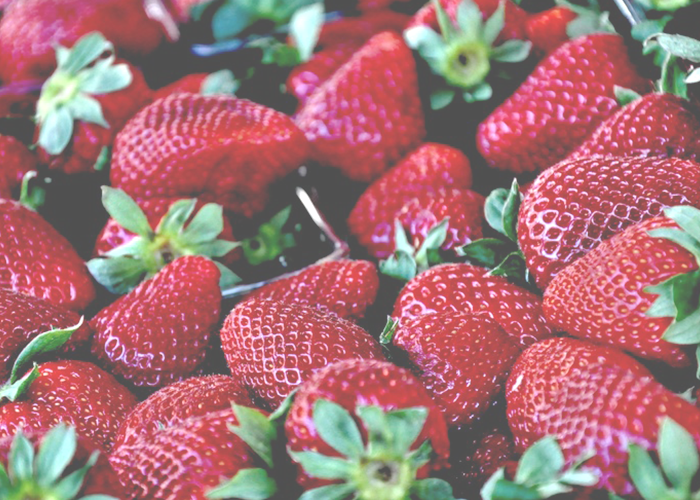Financial Advice From A Recovering Orthorexic

I saw Chelsea sharing an article last week from Elle magazine, a food diary from a juice guru out in Los Angeles that tracked her eating for a day. Chelsea said that a lot of people had sent it to her, and it seems like it went viral, but no one sent it to me. I know that they didn’t do it because I used to be that girl, and people probably thought that I was too fragile in my recovery to be reading things like that, and it would trigger me. In some ways, I’m glad I read it, because it made me realize that I’m far enough from my disordered eating that I am able to see posts like that for what they are: ridiculous, laughable, and dangerous.
I don’t want to get into too much of the medical and psychological aspects of eating disorders, because I don’t want to put that on anyone else, and I can only speak for myself. For me, my raw veganism and hyper-focused “clean eating” was absolutely a disorder, and one that I am still very much in treatment for. But I can’t say that a similar diet, no matter how many things we have in common, is disordered for someone else. That is a personal thing, and not a judgment we can make.
But what I can speak to, and what is something I am also in recovery for, is the financial and class aspect of the clean eating obsession. For me, my orthorexia was extremely tied into my desire to portray a certain level of class and education. I currently work in a very “stylish” industry, where being thin, well-dressed, from a rich family, and with a good educational background is hugely important. I was chunky, bad at dressing myself, came from a very working-class family in rural Pennsylvania, and went to a state school on scholarship. I always felt like the odd person out in my office, and although I got in on my merits through a very strong portfolio, I also always felt self-conscious of what I had to prove.
In addition to being thin, which was important for me and the image I wanted to portray, eating in an extremely healthy way and being religious about my yoga classes were essential. The truth of orthorexia is that it is, fundamentally, a very expensive thing. I would spend huge chunks of my monthly paycheck (which, luckily, are pretty big) on everything from pressed juices to organic produce to vegan restaurants where I always made sure to take a picture-perfect Instagram of my superfood bowl. As someone whose childhood contained a lot of fast food, processed ingredients, and frozen dinners, eating this food and spending this money was extremely important to my self-definition.
My aversion to ever enjoying a bag of the Cheetos I craved during my period, or indulging in some cheesy fries with my friends, became about how much I could control myself, and how far away I could seem from my family and roots (which were all still fighting obesity and diabetes in Pennsylvania). I needed to prove, to myself and others, that I could be this extremely healthy person, which was very much also about my new social class and status. And I justified all of these purchases by saying that I was “investing in myself” because “my body is my temple.” It gave me a feeling of self-control that I can only describe by saying “euphoric,” but for all the wrong reasons. I felt better than people, no person more than my former self.
Only in recovery have I learned that spending over a thousand dollars a month on my ridiculously-expensive food regime was not for anyone’s benefit but my ego’s, and my inability to save any money and protect myself was the opposite of growth. I should have known better than to sink my money into things I ate, as someone who came from serious financial insecurity, but it was more important to me to have my green juices and bee pollen than to have a savings account.
Now I am proud to say that I eat a healthy, balanced, affordable diet. I eat pretty much everything, but in moderation, and cook all my meals at home six days a week. I view meat as a treat, but I enjoy it, along with all the junk foods that remind me of my childhood. I try to buy sustainable and organic whenever I can, but I allow myself to fill my kitchen with much more affordable cannned veggies and legumes, as well as lots of frozen stuff. I do co-ops and lots of Trader Joe’s, and have found a happy medium as far as health vs. cost. It’s been tough to give up the class validation that came with my old lifestyle, but I have learned that balance will not be achieved if I become obsessed with health and “purity.”
“Eating clean” is a dangerous, vague term, but it’s one that I used to cling to with religious fervor. It fed into my regarding everything “unclean” in very moralized and shameful terms, and led to me spending years wasting my money and mental health on perfection, and getting my biggest rush of satisfaction when I would turn something down. I am no longer the girl who feels superior when she turns down a piece of cake because it’s “unclean.” I am the girl who accepts that there is no such thing as “pure” or “unpure” foods, and that finding joy in sharing a delicious meal or tasting something rich an indulgent is a huge part of the human experience. I will no longer be wasting all of my money to pretend otherwise.
Image via Pexels




